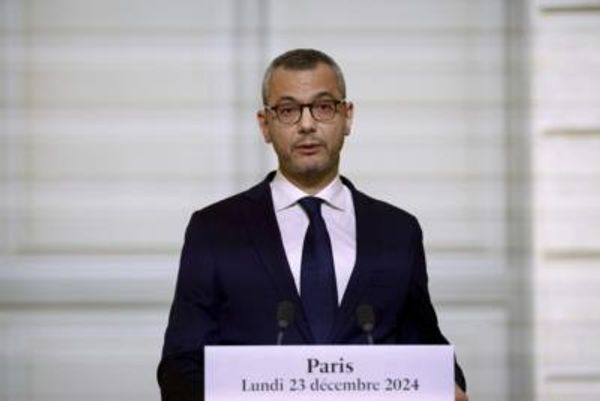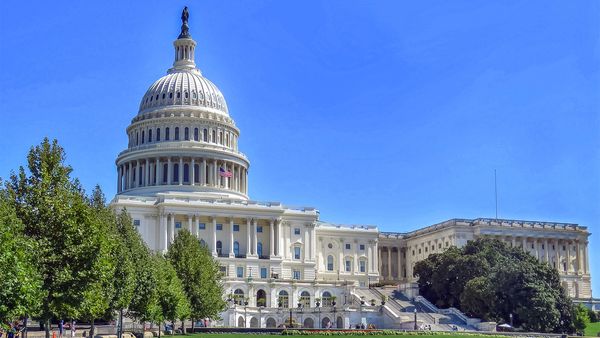
If you think Australia’s Labor and Liberals have a hard time with the slow collapse of the two-party system, spare a thought for reelected French President Emmanuel Macron, now confronting a far more uncertain outcome in the country’s parliamentary elections this month.
Polls are hinting that a surprisingly united socialist and green coalition — the New Ecological and Social Popular Union (NUPES) — could grab a majority in the assembly, or at least deny Macron’s centrist coalition control of the Parliament.
It’s offering a real-life example of the global left’s argument that economics — abandoning neo-liberalism — can trump working-class support for hard-right populism.
The result? Jean-Luc Mélenchon (think France’s Bernie Sanders) could break through as prime minister for Macron’s second presidential term, with his promise to attack inequality with a wealth tax and more progressive property tax.
At immediate risk is France’s membership in NATO. Mélenchon, himself, is critical. The coalition’s official policy is more circumspect, asserting “that the UN is the only legitimate body for collective security on a global scale”.
The coalition rise has already prompted a shift in Macron’s rhetoric on the Russian invasion of Ukraine, cautioning last week: “We must not humiliate Russia so that the day when the fighting stops we can build an exit ramp through diplomatic means.”
Ukraine and its supporters in central and northern Europe were unimpressed, particularly Sweden and Finland, who are trying hard to get into NATO.
Polling suggests that in this coming weekend’s first round, NUPES will top the vote in the low 30%, followed close behind by Macron’s coalition. The ethno-nationalist Rassemblement National of Marine Le Pen lies third with about 20%. Lagging the field are last time’s second-placers, the Gaullist Republicans, now hovering around an anaemic 10%.
The key, as Australians know better than most, is where those votes fall and how the “preferences” play out. In France, voting takes place over two rounds on Sundays a week apart, with the top two candidates in each constituency going through to the second round.
Macron has built his political success over the past six years out of the splintering of the parties of the left — including both his and Mélenchon’s old party, the once-dominant Socialists — coupled with the right-wing divide between the Republicans and Le Pen’s RN.
Last time around, Macron’s newly formed party La République en marche (LREM) lead out of the first round, with about one-third of the vote. This put them into the second round in most seats where, depending on the runner-up, the centrist party could pull votes from either the left or the right. The result was a comfortable majority of 350 out of the 577 seats in the assembly (and a profoundly divided opposition).
Now it’s much harder: April’s presidential election (in which a fractured left put Macron and Le Pen into the second round for the second election in a row) has spurred unity on the left: a 650-point common program (with a bit of “agree to disagree”) and a single candidate in each constituency (divided up based on polling support, including 100 for the “ecological pole”). Now the left looks likely to lead into the second round in most seats.
Meanwhile, the slump in the traditional right leaves fewer votes for Macron’s group to harvest in round two.
The wild card is what will happen to the voters of the right-wing Rassemblement National where (as is likely in most places) their candidate doesn’t make it.
By demographic, their voters are closest to the left: working class, young, disaffected with Macron.
And there’s a surprising key policy where the left and the far right (and their working-class supporters) passionately agree: keeping the retirement age at 62. According to a recent poll in Le Monde, two-thirds of RN voters strongly oppose Macron’s plan to raise the age to 65. So do most of the left.
On the other hand, race and immigration cleave the two blocs: while opposition to immigration is the right-wing party’s raison d’être, Mélenchon has embraced “creolisation” as a French ideal.
In metropolitan France, the first round takes place next Sunday. Voting is already underway in French territories in the Pacific and among expats in Asia and Australia. The votes from the overseas territories and dominions usually divide on local issues (including independence). But in a close election, these constituencies could be the ones that decide France’s next prime minister.







